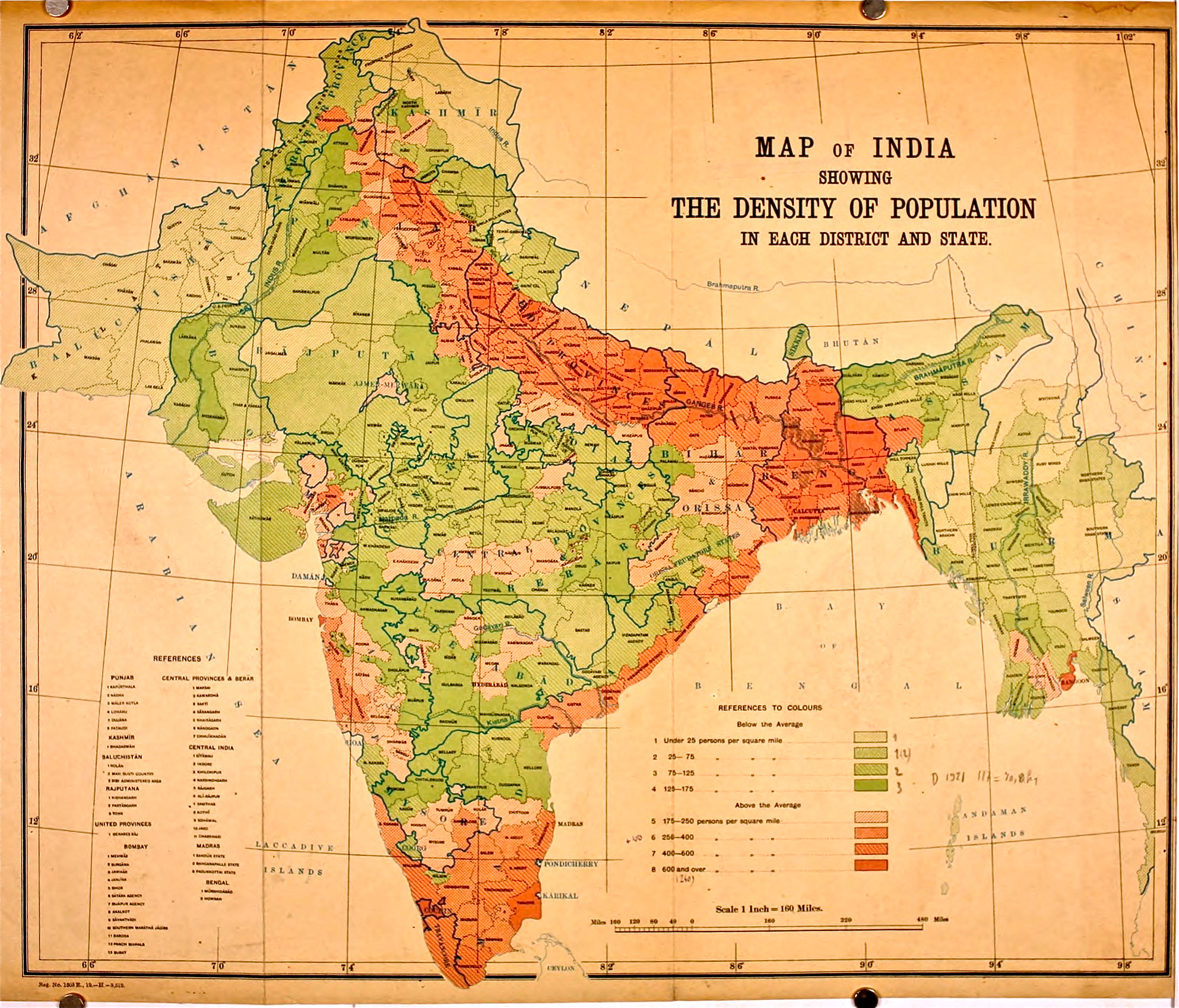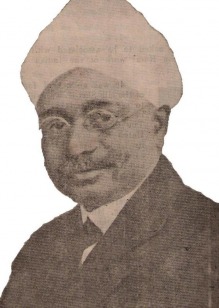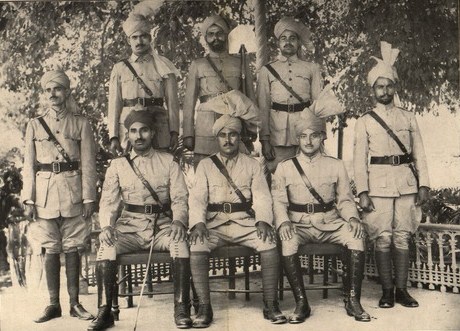|
Opposition To The Partition Of India
Opposition to the partition of India was widespread in British India in the 20th century and it continues to remain a talking point in South Asian politics. Those who opposed it often adhered to the doctrine of composite nationalism. The Hindu, Christian, Anglo-Indian, Parsi and Sikh communities were largely opposed to the partition of India (and its underlying two-nation theory), as were many Muslims (these were represented by the All India Azad Muslim Conference). Pashtun politician and Indian independence activist Khan Abdul Ghaffar Khan of the Khudai Khidmatgar viewed the proposal to partition India as un-Islamic and contradicting a common history in which Muslims considered India as their homeland for over a millennium. Mahatma Gandhi opined that "Hindus and Muslims were sons of the same soil of India; they were brothers who therefore must strive to keep India free and united." Sunni Muslims of the Deobandi school of thought "criticized the idea of Pakistan as being ... [...More Info...] [...Related Items...] OR: [Wikipedia] [Google] [Baidu] |
Population Density Map Of British India According To 1911 Census
Population typically refers to the number of people in a single area, whether it be a city or town, region, country, continent, or the world. Governments typically quantify the size of the resident population within their jurisdiction using a census, a process of collecting, analysing, compiling, and publishing data regarding a population. Perspectives of various disciplines Social sciences In sociology and population geography, population refers to a group of human beings with some predefined criterion in common, such as location, race, ethnicity, nationality, or religion. Demography is a social science which entails the statistical study of populations. Ecology In ecology, a population is a group of organisms of the same species who inhabit the same particular geographical area and are capable of interbreeding. The area of a sexual population is the area where inter-breeding is possible between any pair within the area and more probable than cross-breeding with in ... [...More Info...] [...Related Items...] OR: [Wikipedia] [Google] [Baidu] |
Azad Muslim Conference
The All India Azad Muslim Conference ( ur, ), commonly called the Azad Muslim Conference (literally, "Independent Muslim Conference"), was an organisation of nationalist Muslims in India. Its purpose was advocacy for composite nationalism and a united India, thus opposing the partition of India as well as its underlying two-nation theory put forward by the pro-separatist All-India Muslim League. The conference included representatives from various political parties and organizations such as Jamiat Ulema-e-Hind, Majlis-e-Ahrar-ul-Islam, All India Momin Conference, All India Shia Political Conference, Khudai Khidmatgar, Krishak Praja Party, Anjuman-i-Watan Baluchistan, All India Muslim Majlis, and Jamiat Ahl-i-Hadis. The Canadian orientalist Wilfred Cantwell Smith felt that the attendees at the Delhi session in 1940 represented the "majority of India's Muslims". ''The Bombay Chronicle'' documented on 18 April 1946 that "The attendance at the Nationalist meeting was about five time ... [...More Info...] [...Related Items...] OR: [Wikipedia] [Google] [Baidu] |
Master Tara Singh
Master Tara Singh (24 June 1885 – 22 November 1967) was an Indian Sikh political and religious figure in the first half of the 20th century. He was instrumental in organising the Shiromani Gurdwara Prabhandak Committee and guiding the Sikhs during the partition of India, which he strongly opposed. He later led their demand for a Sikh-majority state in East Punjab. His daughter, the Indian journalist and politician Rajinder Kaur, was killed by Khalistani militants in Bathinda. In 2018, his great granddaughter in law mentioned that Master Tara Singh’s “dream of an autonomous Sikh state in India remains unfulfilled.” Early life Singh was born on 24 June 1885 to a Sikh family in Rawalpindi, Punjab Province in British India. Later he became a high school teacher upon his graduation from Khalsa College, Amritsar, in 1907. Singh's career in education was within the Sikh school system and the use of "Master" as a prefix to his name reflects this period. Political ... [...More Info...] [...Related Items...] OR: [Wikipedia] [Google] [Baidu] |
Shiromani Akali Dal
The Shiromani Akali Dal (SAD) (translation: ''Supreme Akali Party'') is a centre-right sikh-centric state political party in Punjab, India. The party is the second-oldest in India, after Congress, being founded in 1920. Although there are many parties with the description ''Akali Dal'', the party that is recognised as "Shiromani Akali Dal ( Badal ) Aka Badal Dal " by the Election Commission of India is the one led by Sukhbir Singh Badal. The party has a moderate Punjabi agenda. On 26 September 2020, they left the NDA over the farm bills. There has been speculation over the Shiromani Akali Dal (SAD), Shiromani Akali Dal (Amritsar), Shiromani Akali Dal (Sanyukt), Sanyukt Samaj Morcha, Shiromani Akali Dal Delhi, Punjab Lok Congress, Lok Insaaf Party and Haryana State Akali Dal; which Rajdeep Singh called the 'Shiromani Akali Dal (Lahore)' and would contest in the next elections. History British India Akali Dal was formed on 14 December 1920 as a task force of the Shiromani ... [...More Info...] [...Related Items...] OR: [Wikipedia] [Google] [Baidu] |
Chief Khalsa Diwan
The Chief Khalsa Diwan is a 117-year-old Sikh organisation, which is the central Organization of various Singh Sabhas spread across Punjab, India. Unlike the Shiromani Gurudwara Prabandhak Committee, the Diwan is an apolitical body and only concerns itself with religious, educational and cultural issues. At present, the Chief Khalsa Diwan Charitable Society runs * 48 schools * 3 colleges * Orphanages * Old age homes * Khalsa Advocate - newsletter * Hospitals and clinics The organisation was founded with the active efforts of Bhai Vir Singh. History The Chief Khalsa Diwan was established in 1902 and setting up the Central Khalsa Orphanage was one of its first tasks. The orphanage opened on 11 April 1904. As with other Sikh organisations, the Chief Khalsa Dewan strongly opposed the partition of India, which many Sikhs thought would create an environment of possible persecution. Presidents * S. Sunder Singh Majithia (1967-1982) * S. Sujan Singh Sadana * S. Kirpal Singh (former ... [...More Info...] [...Related Items...] OR: [Wikipedia] [Google] [Baidu] |
Christianity In India
Christianity is India's third-largest religion with about 27.8 million adherents, making up 2.3 percent of the population as of the 2011 census. The written records of the Saint Thomas Christians state that Christianity was introduced to the Indian subcontinent by Thomas the Apostle, who sailed to the Malabar region in the present-day Kerala state in 52 AD. The Acts of Thomas mentions that the first converts were Malabarese Jews, who had settled in India before the birth of Christ. Thomas who was a Jew by birth came in search of Indian Jews. Following years of evangelising, Thomas was martyred and his remains were buried at St. Thomas Mount in Mylapore. A scholarly consensus exists that Christian communities had firmly established in the Malabar by 600 AD at the latest. These communities were composed mainly of the Oriental Orthodox Eastern Christians, belonging to the Church of the East in India, that used Syriac as their liturgical language. Following th ... [...More Info...] [...Related Items...] OR: [Wikipedia] [Google] [Baidu] |
All India Conference Of Indian Christians
The All India Conference of Indian Christians (AICIC) is an ecumenical organisation founded in 1914 to represent the interests of Christians in India. It was founded to advocate for the moral, economic, and intellectual development of the Indian Christian community. The All India Conference of Indian Christians held its first meeting on 28 December 1914 and was led by Raja Sir Harnam Singh of Kapurthala, who was the president of the National Missionary Society (NMS); the first AICIC General Secretary was B. L. Rallia Ram of Lahore. Its creation united local and regional Indian Christian Associations, which existed in Bombay, Madras, Hyderabad, Punjab, United Provinces, Bengal and Burma, under one umbrella organisation. At the time of the Indian independence movement, the organisation allied itself with the Indian National Congress and the resolutions passed by All India Conference of Indian Christians advocated communal harmony, while also pressing for the rights of Christians i ... [...More Info...] [...Related Items...] OR: [Wikipedia] [Google] [Baidu] |
1946 Indian Provincial Elections
Provincial elections were held in British India in January 1946 to elect members of the legislative councils of British Indian provinces. The consummation of British rule in India were the 1945/1946 elections. As minor political parties were eliminated, the political scene became restricted to the Indian National Congress and the Muslim League who were more antagonised than ever. The Congress, in a repeat of the 1937 elections, won 90 percent of the general non-Muslim seats while the Muslim League won the majority of Muslim seats (87%) in the provinces. Nevertheless, the All India Muslim League verified its claim to be the sole representative of Muslim India. The election laid the path to Pakistan. Background On 19 September 1945, following negotiations between Indian leaders and members of the 1946 Cabinet Mission to India from the United Kingdom, the Viceroy Lord Wavell announced that elections to the provincial and central legislatures would be held in December 1945 to J ... [...More Info...] [...Related Items...] OR: [Wikipedia] [Google] [Baidu] |
Momin Conference
The All India Momin Conference ( ur, ), commonly abbreviated as Momin Conference and also known as Jamaat-ul-Ansar ( ur, ), is a political party that was founded in India in 1911. It was formed to articulate the interests of the Momin Ansari community. In particular, the All India Momin Conference "aimed to revive the traditional crafts of weavers, promote self-respect and devout religious conduct among the weavers and restore their independent status." The Momin Conference "saw itself as articulating the interests of ordinary Muslims" as opposed to the "Muslim League, the latter being perceived a party of eite Muslims". In 1940, the All India Momin Conference passed a resolution in Patna that opposed the partition of India. It said: “the Partition scheme was not only impracticable and unpatriotic but altogether un-Islamic and unnatural, because the geographical position of the different provinces of India and the intermingled population of the Hindus and Muslims are against the ... [...More Info...] [...Related Items...] OR: [Wikipedia] [Google] [Baidu] |
Allama Mashriqi
Inayatullah Khan Mashriqi ( ur, ; August 1888 27 August 1963), also known by the honorary title Allama Mashriqi (), was a British Indian, and later, Pakistani mathematician, logician, political theorist, Islamic scholar and the founder of the Khaksar movement. Around 1930, he founded the Khaksar Movement. aiming to advance the condition of the masses irrespective of any faith, sect, or religion.S. Shabbir Hussain, Al-Mashriqi: The Disowned Genius, Lahore, Jang Publishers, 1991 Early years Background Inayatullah Khan Mashriqi was born on 25 August 1888 to a Rajput family in Amritsar.Nasim Yousaf, ''Pakistan's Freedom & Allama Mashriqi; Statements, Letters, Chronology of Khaksar Tehrik (Movement), Period: Mashriqi's Birth to 1947'', page 3. Mashriqi's father Khan Ata Muhammad Khan was an educated man of wealth who owned a bi-weekly publication, ''Vakil'', in Amritsar. His forefathers had held high government positions during the Mughal Empire and Sikh Empires. Because of h ... [...More Info...] [...Related Items...] OR: [Wikipedia] [Google] [Baidu] |
Khaksar Movement
The Khaksar movement ( ur, ) was a social movement based in Lahore, Punjab, British India, established by Inayatullah Khan Mashriqi in 1931, with the aim of freeing India from the rule of the British Empire. The Khaksars opposed the partition of India and favoured a united country. The membership of the Khaksar movement was open to everyone and had no membership fee regardless of the person's religion, race and caste or social status. The emphasis was on the brotherhood of mankind and being inclusive for all people. History Around 1930, Allama Mashriqi, a charismatic Muslim intellectual whom some considered to be of anarchist persuasion, revisited the principles for self-reform and self-conduct that he had laid out in his 1924 treatise, entitled ''Tazkira''. He incorporated them into a second treatise, ''Isharat'', and this served as the foundation for the Khaksar movement, which Roy Jackson has described as being "... essentially to free India from colonial rule and ... [...More Info...] [...Related Items...] OR: [Wikipedia] [Google] [Baidu] |
Muttahida Qaumiyat Aur Islam
''Composite Nationalism and Islam'', titled ''Muttahida Qaumiyat Aur Islam'' ( ur, ) is a book written in 1938 by Husain Ahmad Madani, the Dean of Darul Uloom Deoband, espousing composite nationalism—a united India for both Muslims and non-Muslims. The book opposed the partition of India and in it Madani advocated for "the ideal of a 'composite nationalism' within an united India, which he thought would be more conducive to the spread and prosperity of his community over the entire subcontinent than any religious partition." The book was translated into English in 2005 by the Jamiat Ulema-e-Hind. The idea of composite nationalism was and remains influential among the Muslims living in India, with the majority of them staying in independent India despite the partition, rather than migrating to the areas that separated to become Pakistan. Arguments Asgar Ali summarized a key point of ''Muttahida Qaumiyat Aur Islam'': ''Composite Nationalism and Islam'' put forth the ide ... [...More Info...] [...Related Items...] OR: [Wikipedia] [Google] [Baidu] |





